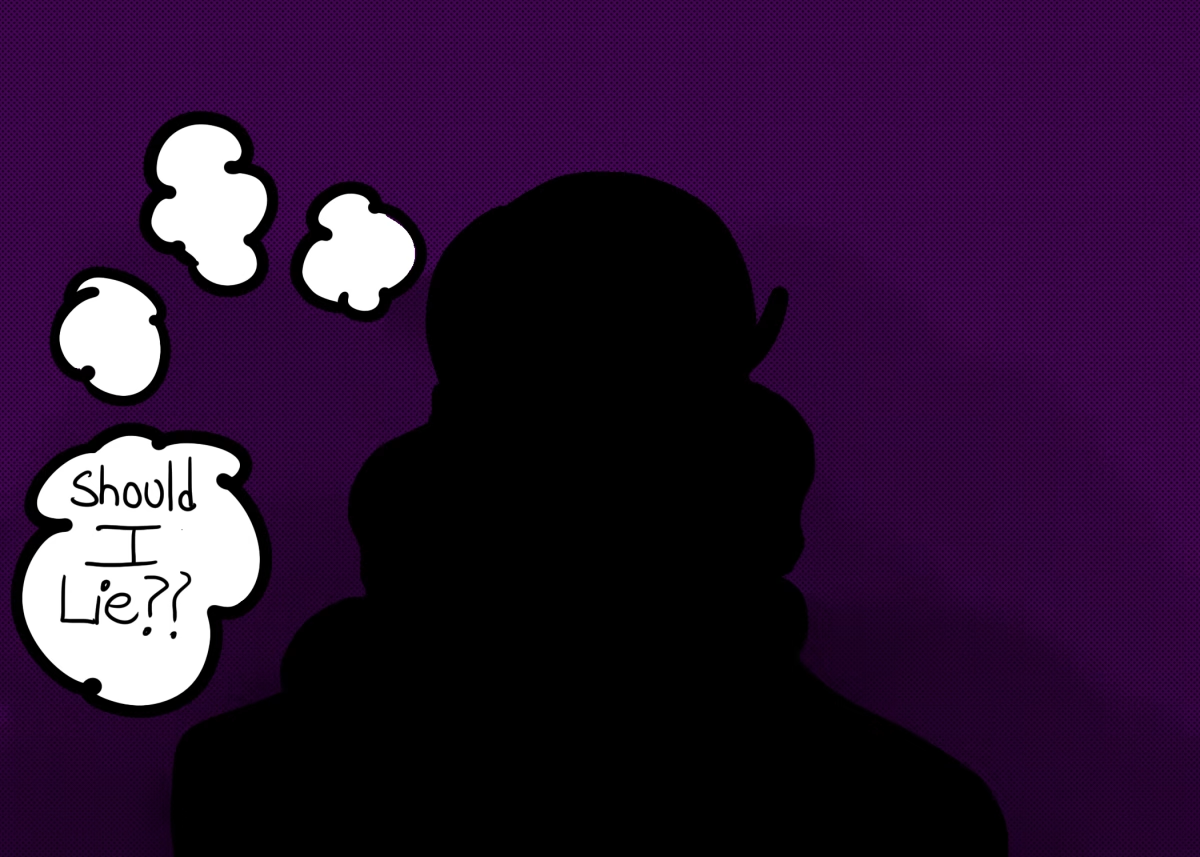I’m sure we’ve all told a lie at some point — some so small we forget them, others not as small. We were often told that “honesty is the best policy,” but what if that policy is only occasionally effective? As we grow older, we’ve learned that adulthood challenges the ethical landscape of lying, especially since entering adulthood is far from a linear path. Sometimes we can question if all lying is bad, or if certain circumstances — like protecting a friend – change the moral implications.
But, honestly speaking, lying is lying, no matter how much we attempt to defend the lies we tell.
We often lean on intention as a way to cover our lies, convincing ourselves that a lie told with a good heart is different.
“I think the appeal to our good intentions here is a false comfort,” Sean Kirkland, a DePaul philosophy professor, said. “I think the consequences of lying for human discourse and communication in general are something people do not generally consider.”
It’s easy to make excuses for our actions. Let’s say your ride-or-die best friend is cheating on their partner – you may keep it a secret thinking it’s an act of loyalty towards your friend. But are you truly being supportive or are you allowing your ride-or-die to make bad choices?
Vashu Bhagat, a freshman film and television major, argued, “If my friend is cheating, I’ll go the mile to defend him. He’s your homie; you can’t be ratting your homie out.”
I think this interpretation takes “ride-or-die” a little too literally. While it may feel right to stand up for your friends and support their decisions, it’s important to consider your own values and what you believe is morally right for you and them.
“Being loyal to a friend means being loyal to them living well as human beings,” Kirkland said.
If we truly care and want the best for our friends, we should encourage them to confront their mistakes rather than hide behind their lies.
Moving on to a more common lie told: a lie to protect someone’s feelings. Maybe your friend is asking for your opinion on an outfit they were excited about or a new haircut. If your true feelings might hurt them, sometimes the safer route is to spill a white lie. Nobody enjoys raining on someone else’s parade.
Katelyn Munis, freshman majoring in networking engineering and security, agrees.
“If my sister got a terrible haircut, I wouldn’t say her haircut is ugly because she can’t change that, so I would like to protect her feelings and make her feel better,” Munis said.
While this perspective is understandable, I’d probably do the same thing. However, as much as we may want to soften the tone to avoid hurting someone’s feelings, the fact remains that a lie is still a lie, regardless of the motivation behind it.
But there’s a good chance that if you tell your friend the truth they may be upset, because let’s be real, the truth is never easy to hear.
If you’re concerned about telling your friends the truth, consider whether your friends want you to be a good friend or whether they’re just seeking validation from you. If your friend values validation over honesty, it’s possible that they’re more concerned about maintaining a good reputation rather than creating a sincere connection.
As Max Simon, a freshman majoring in film and television, puts it, “If your friend doesn’t want honesty, then you maybe shouldn’t be friends with them.”
Sometimes lies start to feel like betrayal. When a friend tells a lie, no matter how big or small, it makes me reconsider how honest they’ve been with me overall. The doubt creeps in and sometimes we begin to second-guess a friendship that means a lot. It’s interesting how many of us overlook the consequences of the lies we tell, just because it feels right to tell the lie at the moment. This is worrying, because those tiny white lies can lead to misunderstandings and spiral into something we never intended.
“It should be much, much harder for us to lie than it probably is for most of us … Lying should be something we cannot do casually; it should pain us to do so,” Kirkland said.
I wholeheartedly agree – lying has become too easy. We search for excuses to justify our lies, but these excuses can quickly turn into a habit. Before we know it, we’re spilling lies a little too easily.
As kids, most of us felt guilty about lying. But in adulthood, it’s too easy to let a lie slip. Every lie, no matter how big or small, slowly takes away the trust that draws us together.
Related Stories:
Support Student Journalism!
The DePaulia is DePaul University’s award-winning, editorially independent student newspaper. Since 1923, student journalists have produced high-quality, on-the-ground reporting that informs our campus and city.
We rely on reader support to keep doing what we do. Donations are tax deductible through DePaul's giving page.


